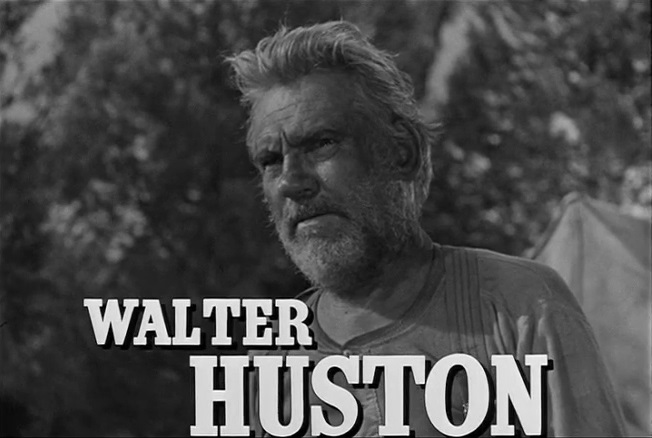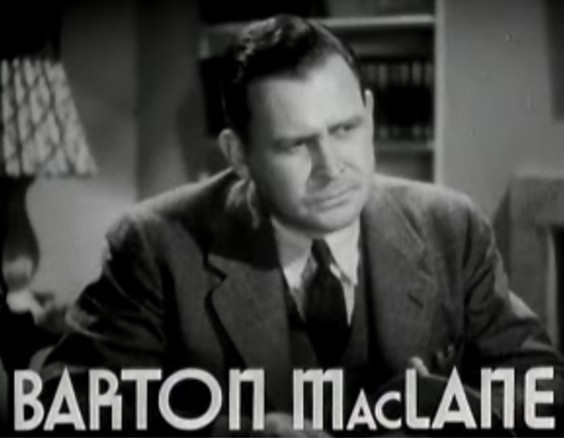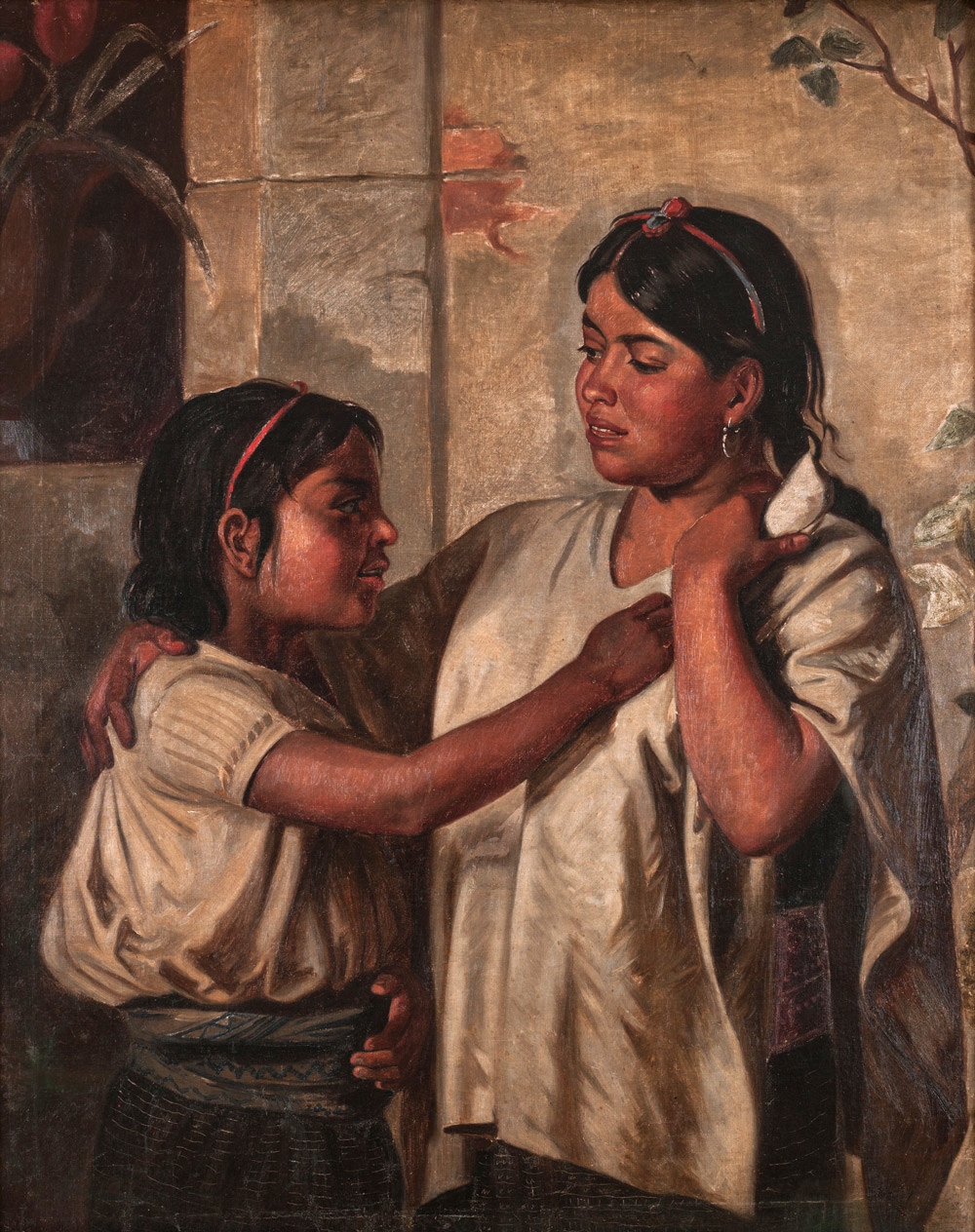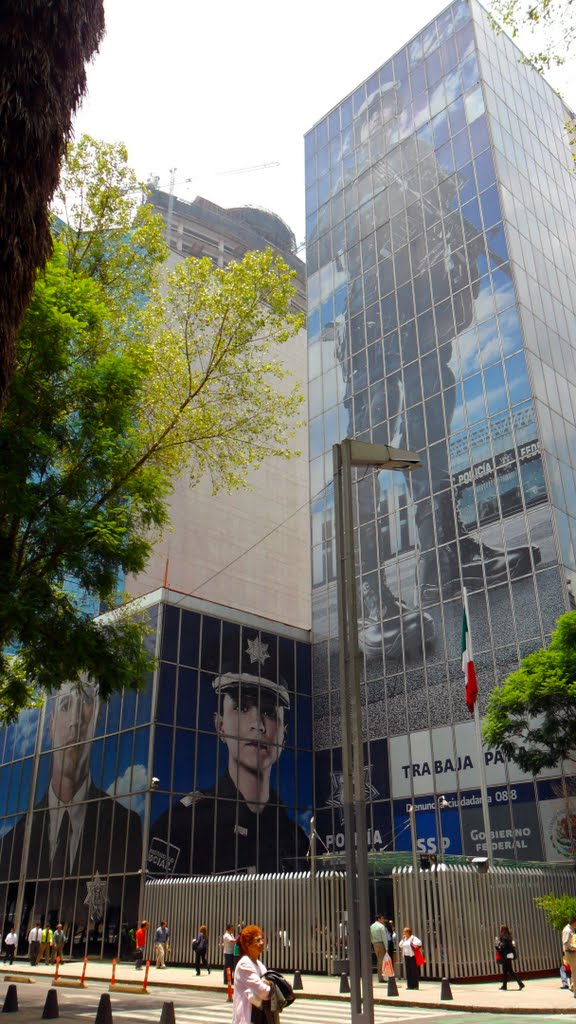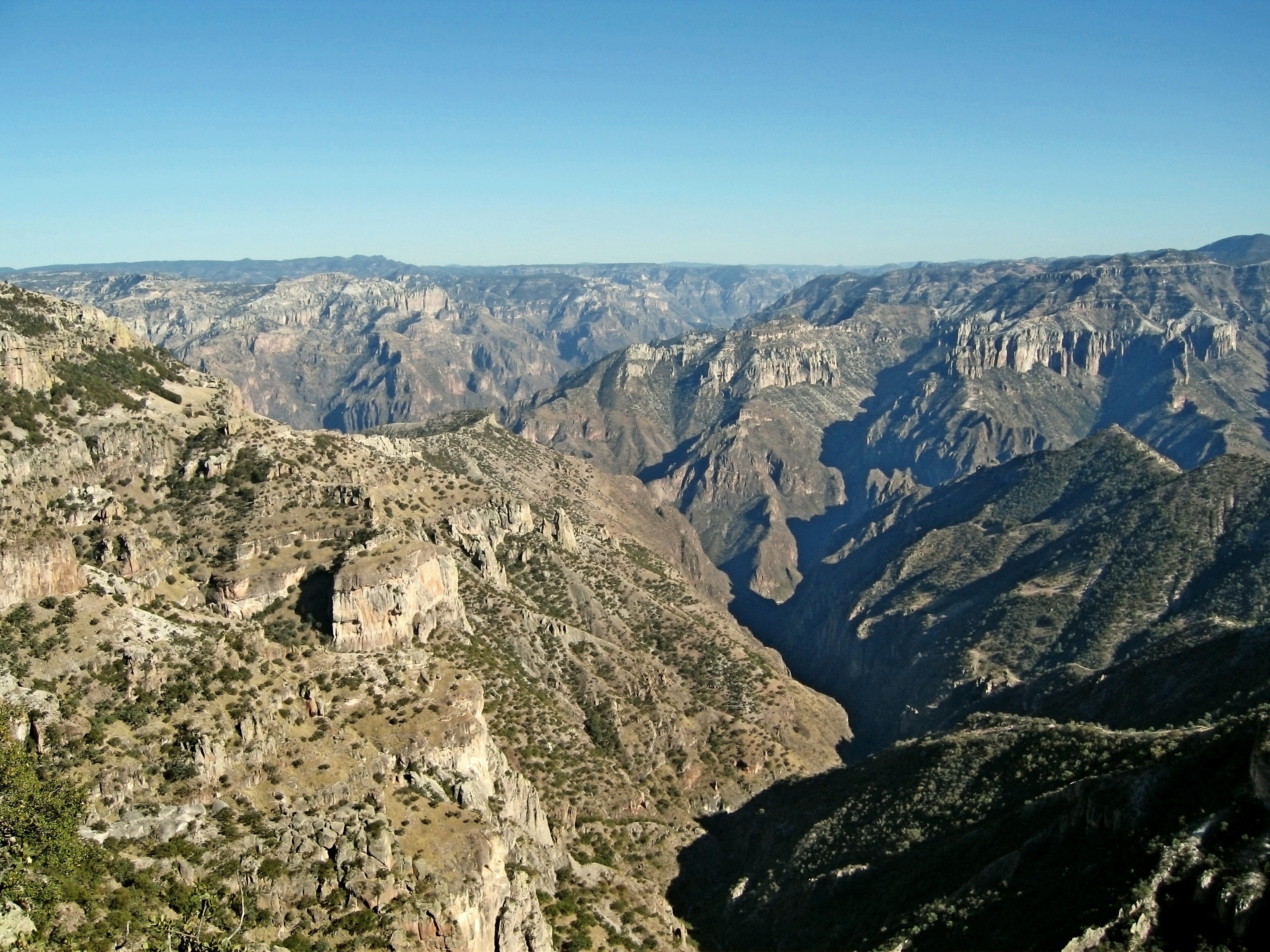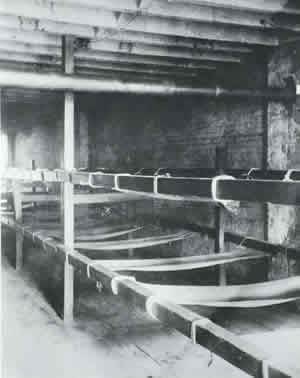|
The Treasure Of The Sierra Madre (film)
''The Treasure of the Sierra Madre'' is a 1948 American Western film written and directed by John Huston. It is an adaptation of B. Traven's 1927 novel of the same name, set in 1925, and follows two downtrodden men (played by Humphrey Bogart and Tim Holt) who join forces with a grizzled old prospector (Walter Huston, the director's father), in searching for gold in Mexico. ''The Treasure of the Sierra Madre'' was one of the first Hollywood productions to be shot on location outside the United States (in the state of Durango with street scenes in Tampico, Mexico), although many scenes were filmed back in the studio and elsewhere in the U.S. In 1990, the film was selected for preservation in the United States National Film Registry by the Library of Congress as being "culturally, historically, or aesthetically significant". Plot In 1925, in the Mexican town of Tampico, labor contractor Pat McCormick recruits Fred C. Dobbs and Bob Curtin, two broke American drifters, as rough ... [...More Info...] [...Related Items...] OR: [Wikipedia] [Google] [Baidu] |
John Huston
John Marcellus Huston ( ; August 5, 1906 – August 28, 1987) was an American film director, screenwriter, actor and visual artist. He wrote the screenplays for most of the 37 feature films he directed, many of which are today considered classics, including '' The Maltese Falcon'' (1941), '' The Treasure of the Sierra Madre'' (1948), ''The Asphalt Jungle'' (1950), '' The African Queen'' (1951), '' The Misfits'' (1961), '' Fat City'' (1972), ''The Man Who Would Be King'' (1975) and ''Prizzi's Honor'' (1985). During his 46-year career, Huston received 15 Academy Award nominations, winning twice. He also directed both his father, Walter Huston, and daughter, Anjelica Huston, to Oscar wins. In his early years, Huston studied and worked as a fine art painter in Paris. He then moved to Mexico and began writing, first plays and short stories, and later working in Los Angeles as a Hollywood screenwriter, and was nominated for several Academy Awards writing for films directed by ... [...More Info...] [...Related Items...] OR: [Wikipedia] [Google] [Baidu] |
Tampico
Tampico is a city and port in the southeastern part of the state of Tamaulipas, Mexico. It is located on the north bank of the Pánuco River, about inland from the Gulf of Mexico, and directly north of the state of Veracruz. Tampico is the fifth-largest city in Tamaulipas, with a population of 314,418 in the city proper and 929,174 in the metropolitan area. During the period of Mexico's first oil boom in the early 20th century, the city was the "chief oil-exporting port of the Americas" and the second-busiest in the world, yielding great profits that were invested in the city's famous architecture, often compared to that of Venice and New Orleans.Dave Graham, "Crime-ridden state poses acid test for Mexican oil reform" ''Reuters,'' 25 June 2014, accesse ... [...More Info...] [...Related Items...] OR: [Wikipedia] [Google] [Baidu] |
Manuel Dondé
er Manuel Dondé (1906 – 27 May 1976) was a Mexican film actor.Kohner p.355 He frequently played villains during his long film career. Selected filmography * ''La llorona'' (1933) * ''Soulless Women'' (1934) - Policía * ''El bastardo'' (1937) * ''The Blood Stain'' (1937) * ''El derecho y el deber'' (1938) - Antonio * ''The Girls Aunt'' (1938) - Lechero * '' The Coward'' (1939) - Minor Role (uncredited) * '' The Cemetery of the Eagles'' (1939) - Sirviente (uncredited) * ''La China Hilaria'' (1939) - Pueblerino (uncredited) * ''Hombres del aire'' (1939) * ''Los olvidados de Dios'' (1940) - Presidiario * ''Los de abajo'' (1940) - Soldado federal deserter (uncredited) * ''Allá en el Trópico'' (1940) * ''El charro Negro'' (1940) - Hombre en cantina (uncredited) * ''El jefe máximo'' (1940) * ''Hombre o demonio'' (1940) * ''Con su amable permiso'' (1940) - Empleado del periódico (uncredited) * ''El Zorro de Jalisco'' (1941) - Chofer (uncredited) * '' Creo en Dios'' (1941) * '' Ne ... [...More Info...] [...Related Items...] OR: [Wikipedia] [Google] [Baidu] |
Arturo Soto Rangel
Arturo Soto Rangel (March 12, 1882 – May 25, 1965) was a Mexican film, television, and stage actor. Soto was best known for appearing in over 250 Mexican films. He appeared in one American movie, '' The Treasure of the Sierra Madre'', which won three Academy Awards and starred Humphrey Bogart, Walter Huston, Tim Holt, Bruce Bennett, and many other successful actors. Soto last appeared on television in 1963, where he starred in ''Voy de gallo''. Early life Soto was the only son of Don José Nemesio de Jesús Soto Ornelas born on October 30, 1852, in Ciudad Manuel Doblado, Guanajuato, México, and of a lady whose last name was Rangel. His mother died giving birth and was a widow from a previous marriage. Soto's stepmother was Doña María de la Luz Gordoa Montes de Oca born in León, Guanajuato, México. Arturo had five half-siblings: Ignacio Soto Gordoa, Guadalupe Soto Gordoa, Angelina de la Luz Soto Gordoa, Maria de la Luz Soto Gordoa, and Alfonso Soto Gordoa. Career Soto was n ... [...More Info...] [...Related Items...] OR: [Wikipedia] [Google] [Baidu] |
Alfonso Bedoya
Benito Alfonso Bedoya y Díaz de GuzmánSan Antonio Light, Dec. 17, 1957, p. 20 (April 16, 1904 – December 15, 1957) was a Mexican actor who frequently appeared in U.S. films. He is best known for his role in ''The Treasure of the Sierra Madre'', where he played a bandit leader and delivered the "stinking badges" line, which has been called one of the greatest movie quotes in history by the American Film Institute. Early life Bedoya was born in the small town of Vícam, Sonora, Mexico, of Yaqui Indian heritage, to Norberto Bedoya Perea and Ignacia Díaz de Guzmán. He had a nomadic childhood upbringing in Mexico, traveling throughout the country with his parents and 19 siblings. At 14, he emigrated to the United States and was educated in Houston, Texas.Washington Court House Record-Herald, March 18, 1950, p. 4 He ran away from school and worked as a railroad section worker, dishwasher, waiter, and cotton picker. Film career Bedoya found work as a character actor in t ... [...More Info...] [...Related Items...] OR: [Wikipedia] [Google] [Baidu] |
Barton MacLane
Barton MacLane (December 25, 1902 – January 1, 1969) was an American actor, playwright, and screenwriter. He appeared in many classic films from the 1930s through the 1960s, including his role as General Martin Peterson on the 1960s NBC television comedy series ''I Dream of Jeannie'', with Barbara Eden and Larry Hagman. Early life MacLane was born in Columbia, South Carolina, on Christmas Day, 1902. He attended Wesleyan University in Middletown, Connecticut, where he excelled at American football. His first movie role, in ''The Quarterback'' (1926), was a result of his athletic ability. He then attended the American Academy of Dramatic Arts. Career He made his Broadway debut in 1927, playing the assistant district attorney in Bayard Veiller's ''The Trial of Mary Dugan''. He then performed in the 1928 Broadway production of ''Gods of the Lightning'' and was part of the original cast of ''Subway Express'' as Officer Mulvaney in 1929. He appeared in the Marx Brothers' 1929 ... [...More Info...] [...Related Items...] OR: [Wikipedia] [Google] [Baidu] |
Irony
Irony (), in its broadest sense, is the juxtaposition of what on the surface appears to be the case and what is actually the case or to be expected; it is an important rhetorical device and literary technique. Irony can be categorized into different types, including ''verbal irony'', ''dramatic irony'', and ''situational irony''. Verbal, dramatic, and situational irony are often used for emphasis in the assertion of a truth. The ironic form of simile, used in sarcasm, and some forms of litotes can emphasize one's meaning by the deliberate use of language which states the opposite of the truth, denies the contrary of the truth, or drastically and obviously understates a factual connection. Definitions Henry Watson Fowler, in ''The King's English'', says, "any definition of irony—though hundreds might be given, and very few of them would be accepted—must include this, that the surface meaning and the underlying meaning of what is said are not the same." Also, Eric Partrid ... [...More Info...] [...Related Items...] OR: [Wikipedia] [Google] [Baidu] |
Indigenous Peoples Of Mexico
Indigenous peoples of Mexico ( es, gente indígena de México, pueblos indígenas de México), Native Mexicans ( es, nativos mexicanos) or Mexican Native Americans ( es, pueblos originarios de México, lit=Original peoples of Mexico), are those who are part of communities that trace their roots back to populations and communities that existed in what is now Mexico before the arrival of the Spanish. The number of indigenous Mexicans is defined through the second article of the Mexican Constitution. The Mexican census does not classify individuals by race, using the cultural- ethnicity of indigenous communities that preserve their indigenous languages, traditions, beliefs, and cultures. According to the National Indigenous Institute (INI) and the National Institute of Indigenous Peoples (CDI), in 2012 the indigenous population was approximately 15 million people, divided into 68 ethnic groups. The 2020 Censo General de Población y Vivienda reported 11.8 million people living in ... [...More Info...] [...Related Items...] OR: [Wikipedia] [Google] [Baidu] |
Federal Police (Mexico)
The Federal Police ( es, Policía Federal, PF), formerly known as the (Federal Preventive Police) and sometimes referred to in the U.S. as "Federales", was a Mexican national police force formed in 1999 and folded into the National Guard in 2019. It operated under the authority of the Department of Security and Civil Protection. The Federal Police was formed through the merger of four previously independent federal police agencies — the Federal Highway Police, the Fiscal Police, the Investigation and National Security Center, and the Mexican Army's 3rd Military Police Brigade — and was initially referred to as the Federal Preventive Police. Throughout its 20 year existence, the Federal Police was dogged by allegations of widespread corruption and abuse — allegations which President Andrés Manuel López Obrador said influenced his administration's decision to disband the force. Since its disbandment, two high-ranking commanders have been arrested for offences they committe ... [...More Info...] [...Related Items...] OR: [Wikipedia] [Google] [Baidu] |
Placer Mining
Placer mining () is the mining of stream bed (Alluvium, alluvial) deposits for minerals. This may be done by open-pit mining, open-pit (also called open-cast mining) or by various surface excavating equipment or tunneling equipment. Placer mining is frequently used for precious metal deposits (particularly gold) and gemstones, both of which are often found in Alluvium, alluvial deposits—deposits of sand and gravel in modern or ancient stream beds, or occasionally glacial deposits. The metal or gemstones, having been moved by stream flow from an original source such as a vein, are typically only a minuscule portion of the total deposit. Since gems and heavy metals like gold are considerably denser than sand, they tend to accumulate at the base of placer deposits. Placer deposits can be as young as a few years old, such as the Canadian Queen Charlotte beach gold placer deposits, or billions of years old like the Elliot Lake uranium paleoplacer within the Huronian Supergroup i ... [...More Info...] [...Related Items...] OR: [Wikipedia] [Google] [Baidu] |
Sierra Madre Occidental
The Sierra Madre Occidental is a major mountain range system of the North American Cordillera, that runs northwest–southeast through northwestern and western Mexico, and along the Gulf of California. The Sierra Madre is part of the American Cordillera, a chain of mountain ranges (cordillera) that consists of an almost continuous sequence of mountain ranges that form the western 'sounds' of North America, Central America, South America and West Antarctica. Etymology The Spanish name ''sierra madre'' means "mother mountain range" in English, and ''occidental'' means "western", these thus being the "Western mother mountain range". To the east, from the Spanish ''oriental'' meaning "eastern" in English, the Sierra Madre Oriental range or "Eastern Mother Mountains" runs generally parallel to the Sierra Madre Occidental along eastern Mexico and the Gulf of Mexico. The range extends from northern Sonora, a state near the Mexico–U.S. border at Arizona, southeastwards to the Trans ... [...More Info...] [...Related Items...] OR: [Wikipedia] [Google] [Baidu] |
Flophouse
A flophouse (American English) or dosshouse (British English) is a place that offers very low-cost lodging, providing space to sleep and minimal amenities. Characteristics Historically, flophouses, or British "doss-houses", have been used for overnight lodging by those who needed the lowest cost alternative to staying with others, shelters, or sleeping outside. Generally rooms are small, bathrooms are shared, and bedding is minimal, sometimes with mattresses or mats on the floor, or canvas sheets stretched between two horizontal beams creating a series of hammock-like beds. People who make use of these places have often been called transients and have been between homes. Quarters are typically very small, and may resemble office cubicles more than a regular room in a hotel or apartment building. Some flophouses qualify as boarding houses, but only if they offer meals. American flophouses date at least to the 19th century, but the term ''flophouse'' itself is only attested fr ... [...More Info...] [...Related Items...] OR: [Wikipedia] [Google] [Baidu] |
